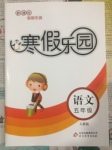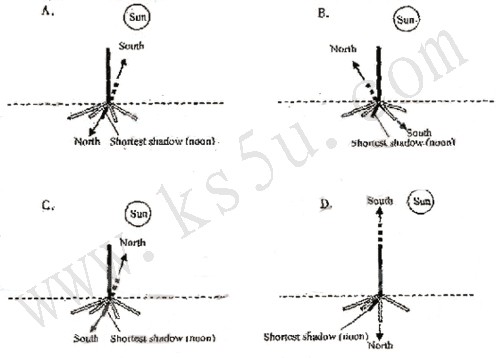题目内容
We ought to help each other in our work, ________ ?
A. oughtn’t we B. should we
C. shall we D. ought to we
A
陈述部分含有情态动词ought to的句子变反意疑问句时,用oughtn’t+主语的形式。

 寒假乐园北京教育出版社系列答案
寒假乐园北京教育出版社系列答案You are careful with your money: you collect all kinds of coupons; look for group-buy deals if you eat out; you don't buy clothes unless in a sale. Does all this make you a wise consumer?
Let's do the math first: you walk into a coffee shop and see two deals for a cup of coffee. The first deal offers 33 percent extra coffee. The second takes 33 percent off the regular price. What's the better deal? Well, they are about the same, you'd think. And you'd be wrong. The deals appear to be equal, but in fact, they are different. Here's the math: Let's say the standard coffee is 10 yuan and let's divide the amount of coffee into three portions(部分). That makes about 3.3 yuan per portion, The first deal gets you 4 portions for 10 yuan (2.5 yuan per portion) and the second gets you 3 portions of coffee for 6.6 yuan (2.2 yuan per portion) and is therefore a better deal.
In a new study published by the Journal of Marketing, participants were asked the same question, and most of them chose the first deal, the Atlantic website reported. Why? Because getting something extra for free feels better than getting the same for less. The applications of this view into consumer psychology(心理) are huge. Instead of offering direct discounts, shops offer larger sizes or free samples.
According to the study, the reason why these marketing tricks work is that consumers don't really know how much anything should cost, so we rely on parts of our brains that aren't strictly quantitative.
There are some traps we should be aware of when shopping. First of all, we are heavily influenced by the first number. Suppose you are shopping in Hong Kong. You walk into Hermes, and you see a 100,000 yuan bag. "That's crazy." You shake your head and leave. The next shop is Gucci, a handbag here costs 25,000 yuan. The price is still high, but compared to the 100,000 yuan price tag you just committed to your memory, this is a steal. Stores often use the price difference to set consumers' expectation. zxxk
Another trap we often fall to Is that we are not really sure what things are worth. And so we use clues(暗示) to tell us what we ought to pay for them. US economist Dan Ariely has done an experiment to prove this. According to the Atlantic, Ariely pretended he was giving a lecture on poetry. He told one group of students that the tickets cost money and another group that they would be paid to attend. Then he informed both groups that thelecture was free. The first group was anxious to attend, believing they were getting something of value for free. The second group mostly declined, believing they were being forced to volunteer for the same event without reward.
What's a lecture on poetry by an economist worth? The students had no idea. That's the point. Do we really know what a shirt is worth ? What about a cup of coffee? What's the worth of a life insurance.policy? Who knows? Most of us don't. As a result, our shopping brain uses only what is knowable: visual(祝觉的) clues, invited emotions, comparisons, and a sense of bargain. We are not stupid. We are just easily influenced.
【小题1】The first paragraph of the passage is intended to
| A.ask a question | B.introduce a topic |
| C.give some examples | D.describe a phenomenon |
| A.consumers usually fall into marketing traps |
| B.consumers' expectation is difficult to predict |
| C.consumers' purchasing power is always changing |
| D.consumers rely on their own judgment when shopping |
| A.The first number has little influence on which item should be bought. |
| B.Consumers never use visual clues to decide how much should be paid. |
| C.Getting something extra for free is better than getting the same for less. |
| D.Consumers never rely on parts of the brains that aren't strictly quantitative. |
| A.showing price differences | B.offering larger sizes |
| C.providing free samples | D.giving direct discounts |
| A.Ariely's free lecture enjoyed popularity among students. |
| B.The students actually didn't know what the lecture was worth. |
| C.The second group was willing to be volunteers without reward. |
| D.The first group was eager to find out the value of Ariely's lecture. |
I’ve changed my mind. “ I wanted to have a telescope, but now I want my dad back.” Lucien Lawrence’s letter to father for Christmas written after his schoolteacher’s father had been knifed to death outside his school gate, must have touched everyone’s heart. Lucien went on to say that without his father he couldn’t see the stars in the sky. When those whom we love depart from us, we cannot see the stars for a while.
But Lucien, the stars are still there, and one day, when you are older and your tears have gone, you will see them again. And, in a strange way, I expect that you will find your father there too, either in your mind and heart. I find that my parents, who died years ago, still figure in many of my dreams and that I think of them perhaps more than I ever did when they were alive. I still live to please them and I’m still surprised by their reactions. I remember that when I became a professor, I was so proud, or rather so pleased with myself that I couldn’t wait to cable my parents. The reply was a long time in coming, but when it did, all my mother said was “ I hope this means that now you will have more time for the children!” I haven’t forgotten. The values of my parents still live on.
It makes me pause and think about how I will live on in the hearts and minds of my children and of those for whom I care. Would I have been as ready as Philip Lawrence have been to face the aggressors, and to lay down my life for those in my care? How many people would want me back for Christmas? It’s a serious thought, one to give me pause.
I pray silently, sometimes, in the dead of night, that ancient cry of a poet “Deliver my soul from the sword, and my darling from the power of the dog.” Yet I know the death comes to us all, and sometimes comes suddenly. We must therefore plan to live forever, but live as if we will die tomorrow. We live on, I’m sure, in the lives of those we loved, and therefore we ought to have a care for what they will remember and what they will treasure. If more parents knew this in their hearts to be true, there might be fewer knives on our streets today.
1.. According to the whole text we can see that the first paragraph ________.
|
A.puts forward the subject of the text. |
|
B.shows the author’s pity on the kid. |
|
C.acts as an introduction to the discussion. |
|
D.makes a clear statement of the author’ views |
2.. In the second paragraph the author mainly wants to explain to us _______.
|
A.how much he misses his parents now |
|
B.why his parents often appear in his dream |
|
C.when Lucien will get over all his sadness |
|
D.how proud he was when he succeeded in life |
3.. What feeling did the author’s mother express in her reply?
|
A.Proud |
B.Happy |
C.Disappointed |
D.Worried |
4. In the author’s opinion, the value of a person’s life is ________.
|
A.to leave a precious memory to the people related |
|
B.to have a high sense of duty to the whole society |
|
C.to care what others will remember and treasure |
|
D.to share happiness and sadness with his family |
5.. What does the writer mean by the sentence taken from an old poem?
|
A.Call on criminals and murderers to lay down their guns. |
|
B.Advise parents stay with their children safely at home. |
|
C.Spend every day meaningfully in memory of the death. |
|
D.Try to keep violence and murder far away from society. |

 It also helps for a leader to be able to do something most of us can’t: FDR overcame polio; Mao swam the Yangtze River at the age of 72. We don’t want our leaders to be "just like us." We want them to be like us but better, special more so. Yet if they are too different, we reject them.
It also helps for a leader to be able to do something most of us can’t: FDR overcame polio; Mao swam the Yangtze River at the age of 72. We don’t want our leaders to be "just like us." We want them to be like us but better, special more so. Yet if they are too different, we reject them.